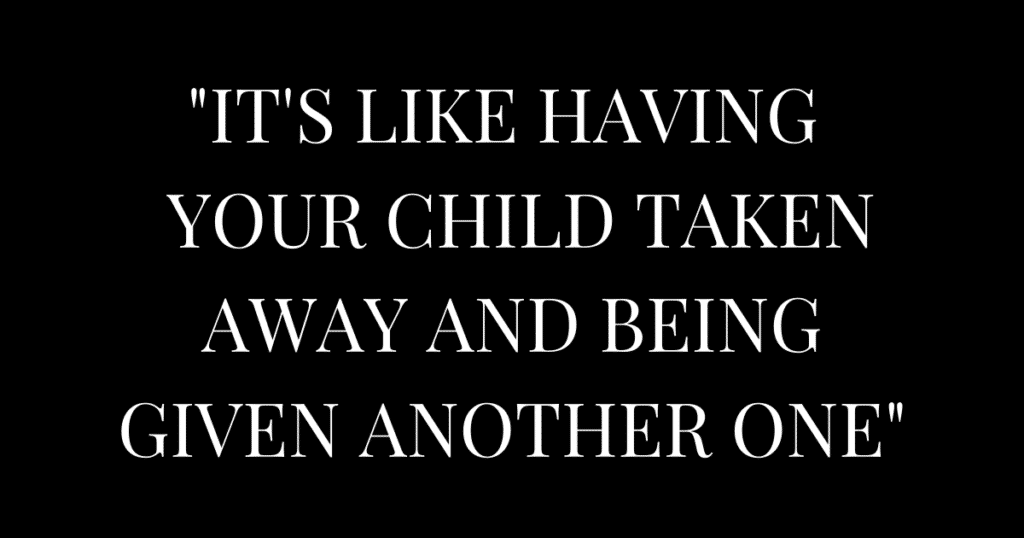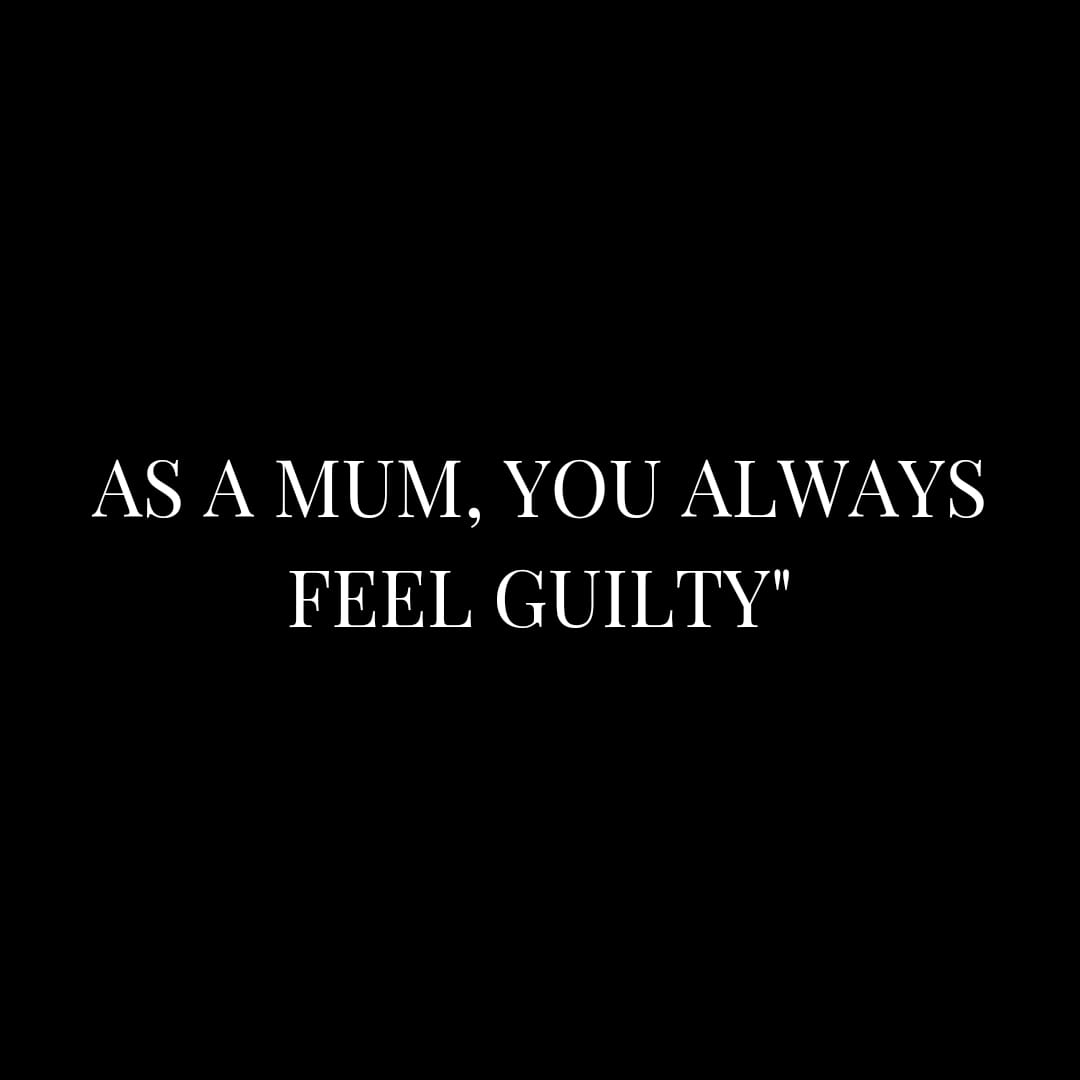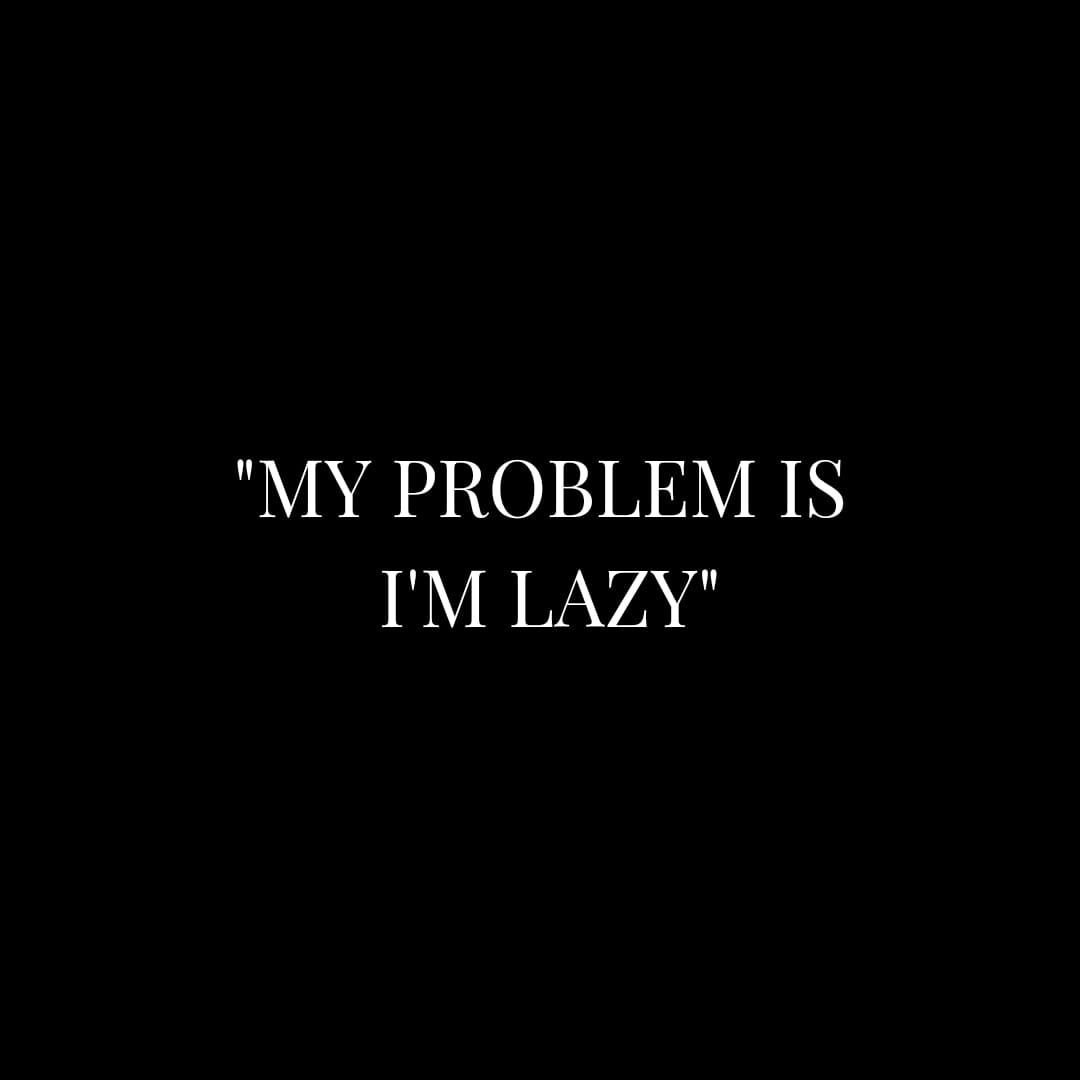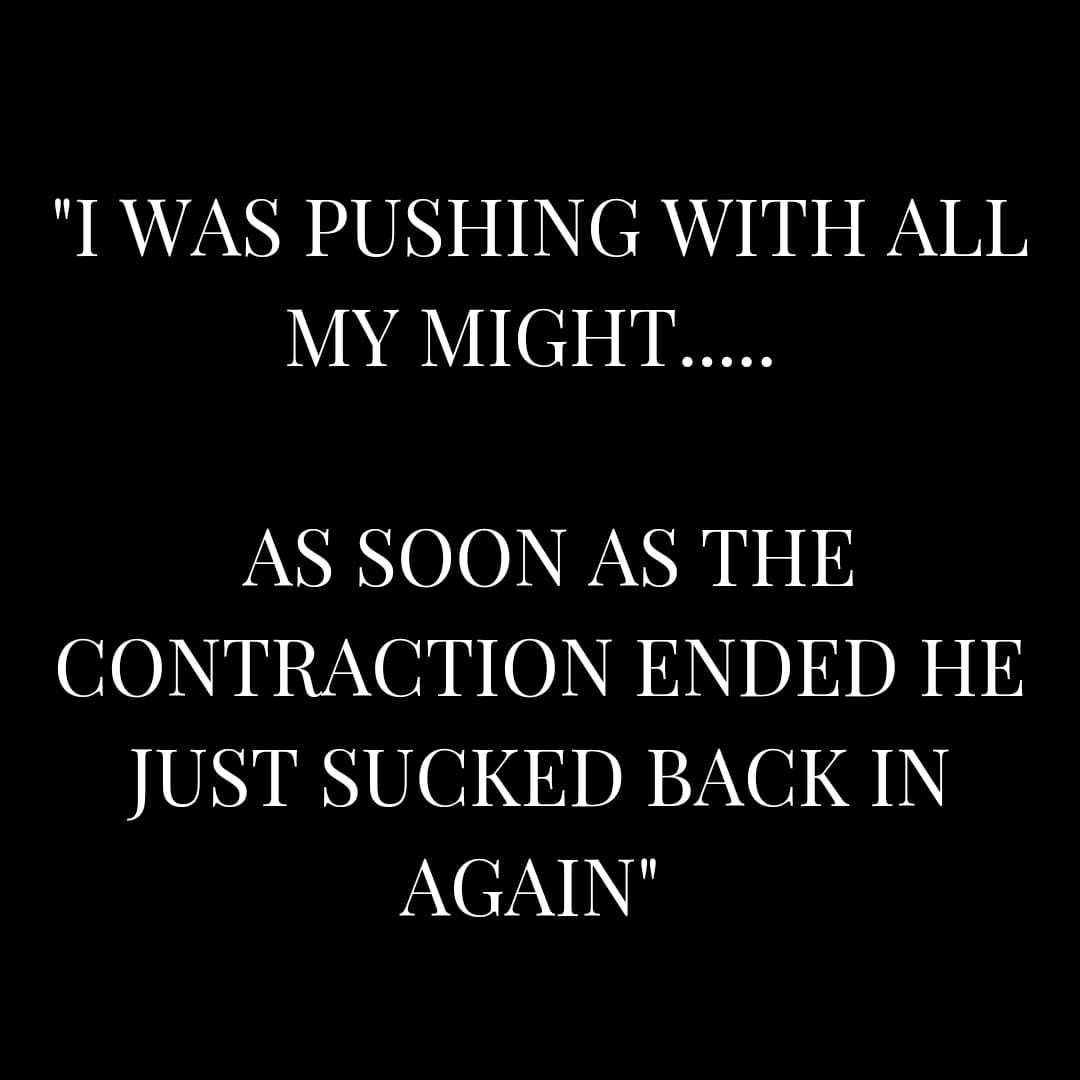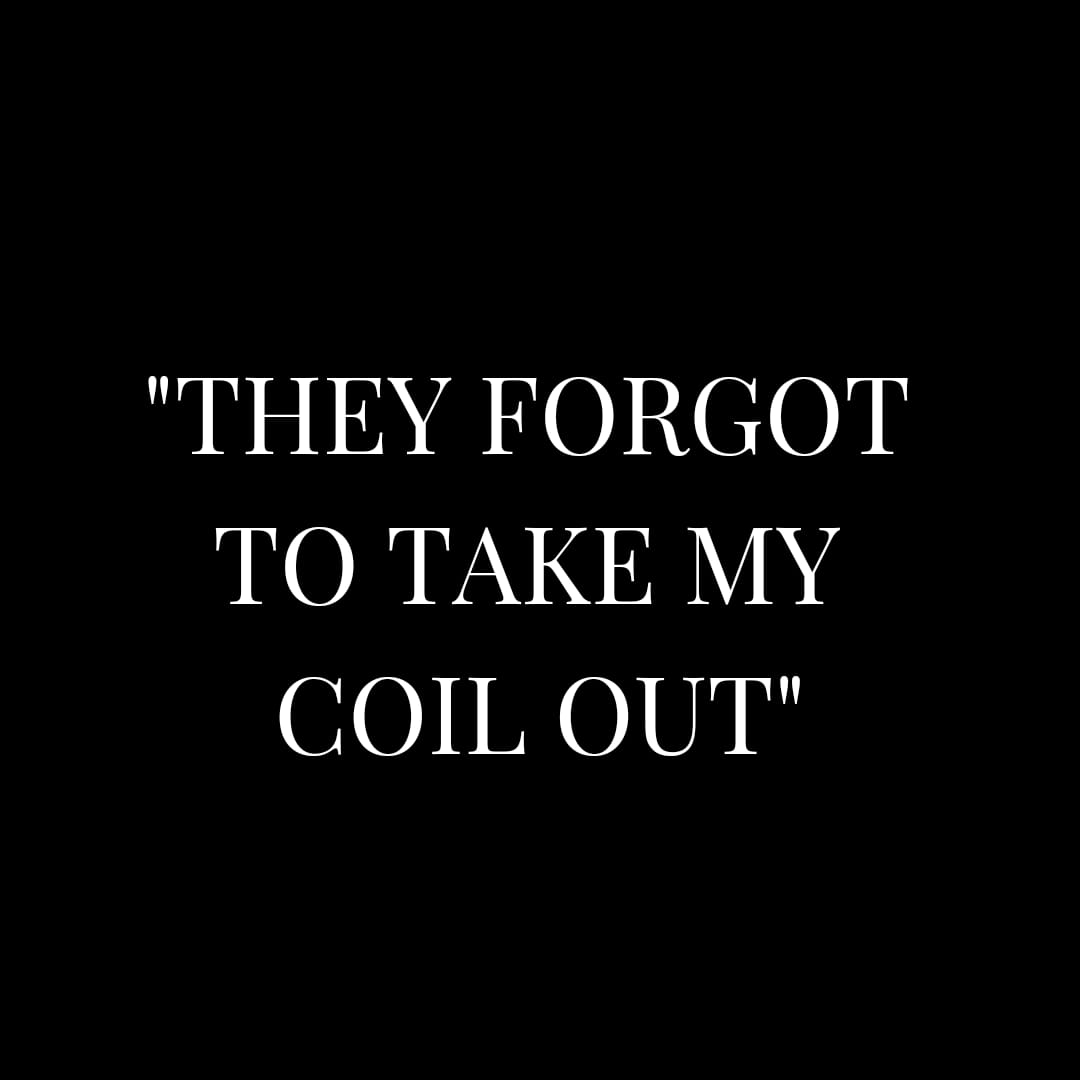- Autism
“It’s like having your child taken away and being given another one ” host Carla Lett speaks openly to Koach Katie about her journey about being a mum to her son who is autistic. Katie talks about the diagnosis, the difficulty she faced and where she is now.
Here are Koach Katie’s Social Links:
https://www.instagram.com/koach_katie/
https://www.facebook.com/Koach-Body-Aesthetics-1841348529253827/
You can find more information about autism in the links below:
Carla [00:00:13] Hello and welcome to 50 Shades of Motherhood, uncensored, unhinged and unapologetic motherhood chats around the highs, the lows, the struggles, everything, really. Today, I am joined by Koach Katie, where she will be sharing her parenting journey on having a child with autism. And I hope you enjoy it.
Carla [00:00:52] Right. Okay. So today’s episode of 50 Shades of Motherhood. With my good friend, Coach Katie. Welcome to the show, Katie.
Katie [00:01:05] Thank you, Carla. I’m excited to be here talking with you.
Carla [00:01:09] I know. I’m very excited to have you as my special guest today. So Katie is gonna be covering all about her and her motherhood journey. And we’re going to start by just asking you, Katie. Just tell us a bit more about you when your background and what it was like, you growing up etc.
Katie [00:01:26] Well, I would say growing up, I had a really nice family unit. I’ve got three sisters, two of whom I grew up with. One’s a lot younger, but we’ve got a really good, close family. My childhood was spent with cousins, aunts, uncles, extended family.
Katie [00:01:46] So I had a really good sense of kind of being safe inside that family unit as a child. Which which I really enjoyed. We were always having meals and parties. And yeah, I I had a good sense of belonging there, which, you know, I I feel like that was sort of a nice thing to have at the start of life. Really.
Carla [00:02:12] That’s fantastic. So so obviously back to kind of your motherhood journey. So did you plan for a baby or how did that kind of come about that how did your little boy come about?
Katie [00:02:26] Yes. So obviously the reason of explain a little bit about my childhood, I think that set me off from a very young age to really want to continue to have that family. You know, feeling and to, you know, I always used to say as a little girl, I want four children, you know, and I had the picturesque big house and this, that and the other in mind. But, you know, it doesn’t always pan out how you expect it as we know, as we as we get into adulthood. But I did definitely plan to have my my son, because at that time of my life, I felt completely ready.
Carla [00:03:06] How old were you then, Katie, when you had him?
Katie [00:03:09] I was twenty seven. Somy son was born two weeks before my twenty eighth birthday. So I had a really happy pregnancy. I was really excited about becoming a mum. And yeah, the whole experience was lovely. Really.
Carla [00:03:25] Oh, that’s nice to hear. A good pregnancy story we like that. So how did you find life being a new mum that you remember kind of how you found that?
Katie [00:03:35] Yeah, I absolutely adored being a new mum. I loved it. You know, I did all the baby groups. I was fortunate the time I had a year off with my son. So, you know, we were out in the park every day. We were walking. I really embraced it. I loved the whole experience of it. That’s not to say it wasn’t exhausting. So I think I can remember it. I look back and think what, what, how lovely it was. But also like attached to that is how tired I felt. So I think, you know, those two things just went hand-in-hand. But I was absolutely fine with it because I was I was just so doted on my son and just just really enjoying the journey of motherhood.
Carla [00:04:20] Yeah no I hear you there. So when did you start to think that he did have autism or did you see something or did someone say something?
Katie [00:04:29] I actually I actually didn’t realise myself. It is one of those things, I suppose I was a new mum and I’d grown up surrounded by girls. My siblings are all sisters. And, you know, I’ve had I have cousins and I remember them being quite wild and and that kind of thing.
Katie [00:04:51] And I certainly knew that my son was a bit of a handful in some respects. And, you know, if we went on a park, he was it was up on the equipment that was designed for 10 year olds when he was 3. If I said stop by the corner of the road. He literally stopped on the corner of the road. And, you know, I just had my heart throat a lot of the time, but I never realised that there was anything underlying, he’s very intelligent. He was steaming ahead with his learning at nursery.
Katie [00:05:20] He could complete a jigsaw in, you know, minus whatever seconds and just had a fantastic memory and capacity to learn and hit, all these milestones brilliantly. So I had no reason to believe that he had autism or made that link. If if that’s one way of putting it. I didn’t make the link at all myself. No, no.
Carla [00:05:46] Only because I’ve not been in a situation where I know what autism is. But, if you could just I’m sure there’s a lot of mums listening that might not know exactly. Could you explain it a bit more? I mean, obviously it’s a very big spectrum, isn’t it? But if you could just explain a bit more from what you’ve seen kind of firsthand and stuff and then mums have got a bit more of an idea.
Katie [00:06:07] Yeah. Well, yeah, autism is a very multifaceted diagnosis. The spectrum, like you say, it’s it’s so difficult to understand because it’s so broad. When you think of autism, quite often people think of severe disability put it has it has a huge range.
Katie [00:06:28] There are lots of children in mainstream school who are highly functioning, who have ASD, which is the you know, there’s somewhere on the autistic spectrum there. So it says the autistic spectrum disorder. It’s referred to as. There is Asperger’s, which is what I believe my son has. However, they don’t they don’t specify in diagnosis now. So so Asperger’s tends to be highly functioning people. People like Einstein had Asperger’s. So. So there is a list, actually, if you if you had any suspicions, I would just suggest Googling the list of points. Because when it was brought to my attention, it was brought to my attention by a family member first. And I went through this list and it was like, I’m trying to think what certain things are on there. So basically, like if your child doesn’t sleep well. So my son’s autism has sleep disorder with it. He’s 10 now, so he’s outgrown the sleep disorder. But as a child, he didn’t sleep whatsoever. I was lucky if he fell asleep by 11:00 at night and he was up at 5:00 in the morning with a couple of wakes in the night. And obviously there was a stage, whereas, you know, I was tearing my hair out and I tried all these techniques and I was doing all these things. Leave him to cry. I tried everything. And it was heartbreaking because nothing worked. So what what it what I found out when a when a when he had the diagnosis was that he has a sleep disorder and no matter what happened, he would never have slept through the night. So, you know, those kind of things you need to know.
Carla [00:08:12] Because you beat yourself up, don’t you, as a mum? Because it’s like I don’t understand why. Why is my child not sleeping through? So, you know, sometimes I can imagine once you knew. It’s kind of like. Right. Well, that’s why that. And you could kind of give yourself a bit of a break.
Katie [00:08:25] I think once I knew that I was able to manage it because, you know, there’s a reason behind it. You’re not just banging your head against the wall thinking, well, I’m following this method or, you know, I’m I’m being religious, trying to get this routine in place. And it’s not working where, you know, it’s worked. So many other people. And I think when that when children are very young, there’s quite a competitive edge at these baby groups, they are brilliant, they are really supportive. I loved going to them. But everybody’s talking about the child sleeping through the night. And I think, you know, you know, I’m nowhere near with this. What am I doing wrong? Yeah, that was that was something that resonated straightaway when I kind of went through this tick list. And I noticed that some of the things were true to my son.
Katie [00:09:11] But actually,.
Carla [00:09:13] How old was he Katie then? At that age when you were kind of going through that?
Katie [00:09:16] This was kind of three and a half. Going towards four. Yeah. But it all kind of happened very quickly because from what I can remember and I’m only recalling, I could be wrong on the timeframe. But he he started school a week after his fourth birthday. He’d been at nursery from about 18 months old and. When he turned four at the end of August, he went straight to his reception class and more or less within the first half. It was within days if I’m honest. The school wanted to get this diagnosis and pushed for it. It was quite an upsetting time because you don’t want to label your child and you think this is a label that’s going to be with them through the rest of the life and you don’t wanna be rushed into doing it. I was under a lot of pressure. The school he was at weren’t overly accommodating.
Katie [00:10:16] They more or less wanted him out there, which was a shock to me because I had this really talented child who was, you know, in my opinion, very ahead with everything that I’d done at nursery and before. And it hadn’t been highlighted to me by anybody, any professionals prior, that this could be an issue or, you know, have a look into autism. This might apply. So it was a shock and it was only maybe a couple of weeks before he started the school. That, I think it’s my cousin who sent me the list. I thought, yeah, that does sound a bit like my son. But then it was all kind of a rollercoaster because we started school and school more or less ended within a term.
Carla [00:11:02] Did they know then? Did they? Did they have an inkling then from what you said or they kind of worked out themselves?
Katie [00:11:10] What happened was he went to the school and he wasn’t keen on sitting down on the floor at carpet time. He was walking around the room doing what he wanted. And there was just various ways where the staff wanted him to do what the rest of the class were doing. And he very much wanted to do his own thing. And I would say proportion of that could be accounted to the fact that he was more like a 3 year old than a 4 year old at the time. But a proportion of it was accounted for by the fact that, you know, he obviously had some communication difficulties, that when you when you were one to one with him, like I always was, you didn’t really notice. But when in a group setting, it was more, you know, he’s doing his own thing, which wasn’t easy to the teachers and let’s say they weren’t keen to accommodate it. I think if he’d been to started school the year after when he just turned five, we would have had a very different outcome. But unfortunately I was given very little choice but to take him out of school. And the journey to find him a new school was a really long and pretty upsetting on,. If I’m honest I more or less had to do that myself and home schooling from that. Well, he missed his reception year, basically started at different school. You know, into year one I think it was the October. He missed the beginning of year one. But so we weren’t we we weren’t a mainstream school at that point. We found a school that was more accommodating for his behavioural difficulties that went with his autism at the time.
Carla [00:12:47] Yeah. I think, um, especially as a new mum, I’ve noticed a lot more people talking around autism etc but it is just especially, I suppose, how many years ago that was now, I’m not saying, you know, it was that long ago Katie. But, things have really changed now. And I think people are a lot more aware of different kind of things that are out there where, you know, and I think looking back at my school, I think there was a lot of children out there that in my classes and stuff that I think would have had a similar diagnosis, which you wouldn’t tell, you know, normally. But looking back on how you’ve explained that and stuff, you know, I just think people are a lot more aware of these things now as well.
Katie [00:13:30] Yeah. When when I got some knowledge on autism and I could see that my son did have it. I could see that you fitted this criteria. I think it’s a really sad time because I’m kind of I’ve gone from having a child that I understood and that I had this. And, you know, all your hopes and dreams for your child in the future and then you’ve suddenly got to reassess. It’s like being given a different child, which is quite a, isn’t it is quite a painful process, really, because you’ve got to switch from this this optimism that you’ve got to the to be realistic. And as much as I’ve still enjoyed every minute of motherhood, it’s a totally different journey to the one that you thought you were you were on the first four years.
Carla [00:14:14] You know, it’s so weird that you say that I’d never thought of it like that. But, yeah, you you’re totally right. It’s because you’ve got all these ideas in your head and, you know, you’ve got friends who. Oh, yeah, well, they’ll go to school together and, you know, and like, you know, everything that your kind of child as you know, it’s changed really from what you were thinking it would be like.
Katie [00:14:35] Yeah, I think I read that somewhere because obviously I threw myself into the research reading books and trying to understand it. And I just hit so many dead ends. But one quote that I read somewhere that really resonated with me was that it was like, you know, almost having your child taken away and being given a different one. And it makes you but it does make you sad to think of it that way. But it is the process that you have to go through. And for any mums who are obviously just starting out on that realisation, you know, my heart goes out to them because it’s it’s an upsetting time. But, you know, you remember throughout it all that your child is still your child. You’ve got the same child and you love them unconditionally anyway. And you do make that transition into being a parent of somebody who has a disability, if you like, and you come out of it, fine the side and your journey is still, you know, a very blessed one where there’s a lot of reward.
Carla [00:15:34] Yeah, definitely. Definitely. And. So how long did it take from like, I suppose, getting the actual diagnosis that was that was that just before he started school the second time or.
Katie [00:15:48] Well, it was it was quick and it was slow. There’s this two kind of things that were going on. So obviously, the school wanted the diagnosis to be quick. This is the first school that he went to locally. The the primary school.
Carla [00:16:02] Can I. Sorry. Katie, can I just say was that through the doctor or through the hospital that deal with that or is it the school that deal with that?
Katie [00:16:11] The school. You don’t really know about this until it comes up. The school has what they call a school doctor, and it tends to be a doctor that is based outside of the school but they are responsible for all the children in the school. I think I’ve got that right. So if the school have any concerns over a child, they can raise them with their school doctor. So it didn’t go through my GP. It went through the school doctor. And basically the school doctor made a recommendation for assessments to take place, which ultimately would lead to a diagnosis of autistic spectrum disorder. So so that happens and it happened quite quickly. And the school made it clear to me they weren’t prepared to accommodate through reception. And I was I was given a couple of nudges to withdraw him from the school, which is it is a tough thing to do because you’ve got the option. You can stand your ground and say, no, I’m not withdrawing my child from the school. And I was given the direct threat that if he did anything wrong, he would be expelled and have that on his record for his whole life all be it, that he was four at the time. So you have it on your conscience. Do you leave that as a as a possibility or do you remove your child and find out what’s better for them?
Carla [00:17:38] You don’t want them to be kind of treated badly either when they’re in a school where people are always looking for them to do something wrong either.
Katie [00:17:46] And that was that was the case. He was in a different room to the other children. He was upset and he was upset by it. He was getting very clingy. He was having some some sort of attachment issues into going into school because of it. And, you know, I knew full well what my child was like on a one to one basis, that it was clever and capable. And on the one hand, I could have stood my ground and gone through this process where he was upset and we were alienated and we were being forced into particular decisions. Or I could take him out and have some breathing space to find people who who, you know, we’re on the right page, if you like, you know, who are prepared to help.
Carla [00:18:34] Yeah and brought out the good kind of the happy child again, I suppose.
Katie [00:18:39] Yeah. Which is what I chose to do. And that was a long sort of. Ten months of home schooling. I did as I say, you missed the whole of the reception. Fortunately, at that age, with him having already been quite advanced with numbers and reading and things like that, there wasn’t much to miss other than social communication and learning how to interact with other children. You know, it wasn’t an intensive program of home learning that had to do.
Carla [00:19:11] And with his age as well. Katie, because he was like an August time, I suppose he was very close to beating that next year anyway. Age wise.
Katie [00:19:21] Well, there was there was there was a plus. There was a positive and a negative to that because. Positive. Yes. He could have just restarted. But it doesn’t really work like that because the education authority had no legal obligation to educate my child until he was five. They dont have that legal obligation to anybody. So the local education authority only have to educate a child from their fifth birthday onwards. Because my child was an August birthday when all this happened and he was sidelined out of his reception class that we prepared ourselves for.
Katie [00:20:02] There was no rush from from anybody else to find him a new setting because until it hit the August, there was no law being breached. So I was more or less, you know, left to it. They made an attempt to send him to a school that was totally unsuitable, which was for much, much older children who had behavioural difficulties. And I had to appeal that to stop that from happening, because it was totally wrong for a young child. And I found the school that he eventually went to myself by. Basically, I was on the phone for that whole period of time from. It was from the January until the October when he eventually started. But I inquired into every single school in the area, mainstream and for special needs to find the right place for him. And we did find a lovely school in the end that had a focus group for children with autism. He was the youngest ever child to to attend that school. So at the age of five, he started in the October and he was the oldest child on record to go to that school, because generally an autism diagnosis would come at the age of six or seven. And that’s when they did move there. So. So, yeah. But he loved that school. And even we made the transition back to mainstream when he was at the end of year three going into year four which I knew I always knew he’d be fine in mainstream, but I had to push for that to happen. And he’s been absolutely fine there since.
Carla [00:21:50] Did he enjoy it? Did he enjoy the mainstream school or was he sad to leave the other school?
Katie [00:21:55] He was excited to go to mainstream because it was like an adventure. But there’s been many occasions where he struggled or found it difficult. And he’s mentioned the previous school and said he wants to go back there because obviously they’ve got an innate understanding of how the mind of a child with autism works. And their every day is to minimise the stress or the anxiety that causes any outbursts in a child with autism. And the staff are highly trained and they’ve got coping mechanisms that prevent that. And nobody wants the child to be upset and stressed. So to be at a school where they avoid that happening rather than try and resolve it once it’s already happened. You know, that’s that’s a win win situation when your child’s too small to understand anything different. So I don’t regret him going there. Whatsoever they prepared him and they gave him tools to integrate back into mainstream, which have definitely benefited him. So it was part of his journey with his with his education so far, really.
Carla [00:23:01] So what struggles did you face then? You know, as a mum with a child with autism, was there certain things that were like easy and then certain things that just, you know, you have to kind of accommodate a bit more in different ways.
Katie [00:23:17] Yes. So if a child’s got autism, you benefit massively from having a set routine that the child understands. And children with autism don’t like change and they don’t like new things generally. So things that my son didn’t like, you know, I used as I used to joke when he was little that he had this love heat that said, just say no on it. And I had a little picture of him before I knew he had autism of him holding this love heart up that said just say no, because autism is just like, well, the end of the spectrum that my son’s actually I say he’s high functioning. He’s got some behavioural difficulties. Sometimes I would like to say he’s outgrown most of them at the age of 10. But as he was younger and communication was more difficult for him, the main thing he used to do was say no to things that a lot of the children probably wouldn’t say no to bless him if I was to say, let’s get in the bath. No. And then the ensuing sort of tantrum about getting in the bath. Let’s eat dinner. No. Do you like you know, let’s have this to eat. No. Shall we? Shall we go here? No. Should we walk here? No. So you constantly faced with this predictable no that you’re going to get every point, of your day. So it does make. It does make it hard. But the more you establish a routine and the more the child knows what’s coming next, the more likely they are to go along with it. So I think, yeah, that that was one of the main things that being able to cope with it.
Carla [00:24:57] Yeah. I think a lot of children are the same in that respect, really with the routine. I mean, with lockdown, we have literally got no routine at the moment. And I do notice that George is a little more argumentative. You know, like, you know, if I kind of say like, oh, mummy’s mummy’s got to work and I have to do it kind of last minute he’s like, no, he doesn’t like it. Whereas if I tell him the day before what’s happening the next day. He seems to kind of be a bit more happy with it and understanding.
Katie [00:25:25] Yeah, definitely. And that’s always been the case. When i’ve explained autism to others and what it means. A lot of people also say, well, my child does that and all children do that. So, yeah, I think it’s it’s an element of normal and a little bit exaggerated at the same time.
Carla [00:25:44] Yeah. Yeah. But it makes for interesting parenting though so thats good, you know, you’re always on your toes.
Katie [00:25:51] Yeah. And that’s the other thing is I’ve always said you’ve just got to be one step ahead and being one step ahead. You know you’d think, oh yeah I could do I could be one step ahead. But can you be one step ahead 24 hours a day, seven days a week. That’s not easy, especially for a child who has sprung out of bed at 10 past 5:00 in the morning. You know, to be one step ahead is a bit of a challenge, but you find your ways and motivation is a big thing with a child with autism. You know, if they know what they’re working for on a particular day or on a particular week, if there is some sort of goal to reach that they are focussed on, that they understand that makes a big difference. If they don’t know why they’re having to do something that, you know, they’ve got no empathy for the people, that you’re gonna be upset if they don’t do it, they don’t care.
Carla [00:26:40] So did you find obviously you’re a successful career woman, so. I mean, obviously, I’ll ask you a bit more about that. But did you find that your kind of this journey, this parenting journey made you kind of. I mean, I suppose created your business and your career or, you know, I suppose your work wise, your career. Did that have to take a bit of a hold back or how did that work?
Katie [00:27:08] It definitely provided motivation for me for several different reasons. My fitness journey started out probably when my son was about 14 months old. I’d always done sport at school and things and gone to the gym. But I’d never really knuckled down and focus for long periods of time on the nutrition and the the fitness side. And for some reason, when I went to work out, that was like my huge release. And perhaps there was an element of stress in my early parenting that I didn’t realise was there. Maybe, you know, the sleepless nights were a challenge. I don’t know. I can’t really remember. I was probably that tired I’ve blocked out. But the fitness going the gym and training really just provided me with my sanity. And they say that about about fitness. Don’t they you get clarity of mind, you get happy endorphins, you get a bit of a feel good factor and a bit of focus. And yeah, people get hooked on different things to help them cope. And I certainly found a lot of relief in just having a good routine with exercise. It was like something for me.
Carla [00:28:20] Yeah, that makes sense. And it’s something you can control as well, isn’t it? I suppose, you know, like as a parent, you can’t really control a lot of things. And you know, you’re on a journey from being a new mum, not getting much sleep to like the rest of it. And fitness and whatever you choose for yourself, care and something for you is something way is yours and you can control it. And thats your almost where you can zone out of all these worries that you have as a parent.
Katie [00:28:46] Yeah. I’d never thought of it like that Carla. But you’ve hit the nail on the head, it is. It’s a control. It’s something you can control in terms of you can make yourself feel better. You can sleep better at night. You can say, right, I’m doing that for that designated amount of time and ok you might have to organise some childcare or someone to step in whilst your doing it. But for that hour and a half or whatever is that you’re off at the gym. You are totally in control with what you do with that time. And it’s probably the most condensed, productive hour and a half that you could spend, isn’t it, when you’re exercising? You’ve had a really good workout.
Carla [00:29:24] Yes. You know, me and Kate, you spoke quite a few times recently about me exercising. And honestly, I really feel great afterwards. I really do. But sometimes I mean it’s if I don’t do it first thing. That’s where the difficulty is for me because I’ve got my energy in a morning. And then by afternoon, I think I can’t think of anything worse than exercise. I know I’ll love it afterwards and I’ll feel great afterwards, but it’s like I’m all or nothing type of person, really.
Katie [00:29:54] Oh so many of us are. I’m all or nothing. And this is my career. And, you know, I know exactly how to get in shape and what to eat. And I know all the ins and outs I’ve studied it for 10 years. But I’m also all or nothing. And don’t think that when this lockdown kicked in, I didn’t drink wine with the best of them because I did. And that isn’t my normal routine whatsoever. But we were all sort of everything was turned on its head, wasn’t it? And what I’ve always noticed with myself personally is that if I don’t exercise. Yeah. You know, I’ve missed it today. OK. The next day I’ve had lots of I’ve missed it this day. By the time I get to three or four days, there is a bit of a frustration in me that I don’t necessarily recognise until I go back to the gym and go, oh my God, I feel so much better now. I’ve done a workout, you know, it just lifts you. And I don’t know anyone who hasn’t done like a fitness program or, you know, they’ve started some sort of thing, whether it’s running, whether it’s, I dunno, something that becomes part of their routine, where they have to switch off from daily life and emails and messages and thoughts and responsibilities. And they literally just exercise. And you might be listening to music or you might be with an instructor, but it clears the mind better than anything else. Definitely.
Carla [00:31:16] It does. And you know, I did Katie’s plan online challenge. When was that? Was it last year or the year before? Got time goes too quick.
Katie [00:31:25] I believe it was the year before actually.
Carla [00:31:27] Oh bloody hell. Yeah. So it’s a six week challenge where Katie gives you like your recipes, your nutrition. She works out everything that you need. Gives you an exercise plan, videos to exercise with you so you can do it in the comfort of your home own home, which is perfect if you’re a parent. And so I did it. And, you know, I swear this on my life, I’ve never felt so good in the whole of my life. And it was six weeks and I lost 13 pounds, didn’t I? And I actually went into a swimming pool during that time. And I think it was after about week four. I was away for my birthday and I put a bikini on. And for the first time in years, I actually walked round like with a bit of a wiggle on my bum. Yeah I look good. I felt great and then I stupidly. And then you slowly you know, I I can’t believe I went broke back into those bad habits. I’m really looking forward to doing my next plan with you again, Katie, on that. But if you can you tell people a bit more about what it is you do and where people can find you.
Katie [00:32:26] Yeah, sure. So what I’ve done for the last sort of eight, nine years, my fitness journey led into I’ll give you a brief background. I won’t go into it too deeply because. But my fitness journey. And when I found they sort sanctuary in my exercise, in my routine, that way it led me competing in bikini competitions, which was an amazing experience. But I was getting asked all the time for advice and I realised just how much ladies needed to know about this if they really wanted to see the results that I know they were picturing in the head. So eventually I became a personal trainer. I was reluctant to do it. And actually it was almost like it was one of those meant to be situations because it was the year that I’ve already spoken to about where my child had been taken out of school and I was home schooling and my previous career wasn’t possible anymore. And I was kind of left in this dire situation where I didn’t know what my job was gonna be at the end of it all. And I’d already started this fitness journey and realised I was quite good at it. And I was being offered this this this personal training course for free. Yeah. When I did the course and started it, I just realised, God, this is what I meant to do. And I hadn’t known before being pushed in that direction by various other aspects of life that, you know, helping other people with it would really suit me as well as it did. But yeah, it just took to it straight away and my fears about it ruining my own fitness journey were totally unfounded. And that’s what led me to do what I’ve done for the last eight years.
Carla [00:34:09] Which is amazing. So you offer you do offer online challenges at the moment and they are brilliant. And when Katie gives you links, you must have a look at the women that have done these six-week challenges. They are incredible. The pictures are just great. You don’t even think it’s same woman. Sometimes it’s like, wow, she looked insane. I mean, she looked great before Bill. You know, it just it’s just so nice to feel good about yourself, isn’t it, as well. But yeah. I just. I mean, it is all about being comfortable in your own skin. And, you know, doing that isn’t for everyone but. I do think if you’re kind of lacking a bit of self-confidence and stuff like that and, you know, it really does help you anyway, it helped me massively and I’m looking forward to doing it again. So, Katie, let’s finish off here because I’ve really, really enjoyed having you on, but I’ve noticed, obviously, with you being one of my one of my really good friends, we could actually talk to death. I’d still be here at 12:00 at night, so you’re gonna have to call it a day. If you if you tell people where they’ll be able to find you, where they’ll be able to access any nutrition information or whatever. That’d be great.
Katie [00:35:19] Yeah. So you can contact me on Instagram, on @koach_body_aesthetics or on Facebook. Koach body aesthetics is a page there. And yeah, I’ve got loads of great stuff coming out over the summer. They’ll be online challenges. I’ve got a boutique gym popping up where I will be doing one to one sessions. So even though mainstream gyms won’t be open yet, when we are in this safe situation of training one to one, that is something I’ll be able to do. And I’ve got a great new recipe e-book coming out. So I’ve been working on loads of fantastic recipes during lockdown, which I’m excited to share with people.
Carla [00:36:00] Oh, that is exciting. Yes. Well, I look forward to that anyway. And it was so lovely having you on and hearing all about your journey as a mother and what we’re going to do, which we’ll be putting Katies links in the show notes. Katie, is your Web site up and running?
Katie [00:36:15] Yeah, it’s been having some redevelopment, but I think you will find it live by the time people are listening to this. So you can find lots more info on there.
Carla [00:36:25] Okay. I’ll include that link in the show notes as well. And also. Yeah, I’ll also put some links to autism on on the show notes as well. Yeah. And and then people can have a look at a look at that.
Katie [00:36:40] Also if there’s any ladies who are struggling with an autism parenting journey or they’re unsure about whether their own child has autism, I’m more than happy to chat if they want to dm me or message me as well.
Carla [00:37:00] Thank you so much for listening to this week’s episode of Fifty Shades of Motherhood. I thoroughly enjoyed it and I hope you guys did too. If you are enjoying the podcast so far, which I really hope you are. And if you’ve got this far, why are you still listening? If you don’t? But I would absolutely love you to subscribe and leave me a little rating. It means the world to me and also helps me out massively, especially when I go to Danny and tell him that I’m gonna be doing series two. Fingers crossed. So I look forward speaking to you next week. And keep an eye on the Facebook page on Instagram. So you know who the next guest is. You will absolutely love it. I know it.
This podcast is sponsored by My Bump 2 Baby family protection and legal directory. Being a parent is such a minefield. It’s so difficult deciding who to select when it comes to financial advice or family law solicitors. My bump 2 baby works with one trusted financial advisor and one trusted family law, solicitor in each town throughout the whole of the UK. To find your nearest advisor or family law, solicitor, head over to www.mybump2baby.com/familyprotectionlegal.


